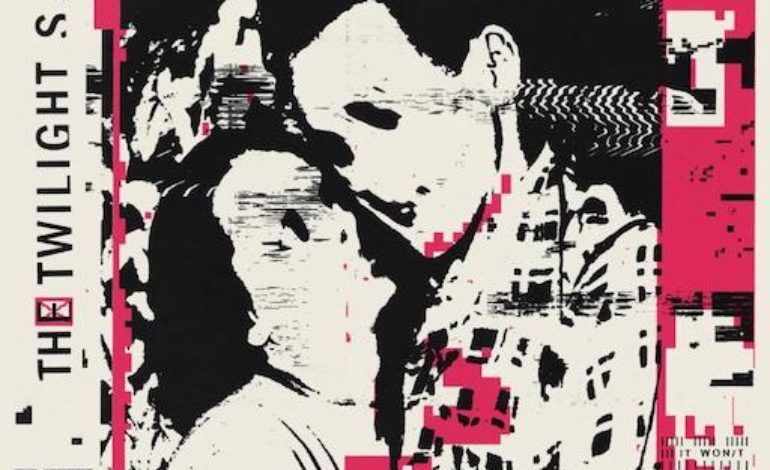

Dance music for the depressed
It is a risky venture to create an album with unrelenting despair as its defining characteristic. Though anyone who has experienced a tumultuous period in life will probably agree that darker emotions have an important—and perhaps even necessary—place in music, artists who focus entirely on these topics often become lost in the gloom. They become unable to distinguish their powerful ideas from uninspiring morose ones. Thus, it is impressive that a band that calls themselves “The Twilight Sad,” after a decade’s worth of music that fully lives up to the name, are still able to channel their misery in a compelling way on It Won/t Be Like This All the Time.
On their fifth album—and their first to be released through Mogwai’s Rock Action Records—The Twilight Sad expand their musical horizons. Relying on intricate synthesizer melodies more than the clamorous, distorted guitar that dominated their sound previously, composer Andy MacFarlane builds an immersive nocturnal world for each track. This backdrop endows singer James Graham’s emotionally raw lyrics with a bracing, almost exhilarating sense of mystery, producing an effect redolent of The Cure, whose frontman Robert Smith has effusively praised The Twilight Sad.
Within the first few seconds of the album, the band announces a new sonic direction, opening “[10 Good Reasons for Modern Drugs]” with a fast-paced, repetitive synth pattern that would not sound out of place on an electronic dance song. However, as Graham leads off with the line, “We’re hanging on by a thread,” it becomes apparent that they have not changed their thematic focus. If the musical style initially seems incongruous with the brooding subject matter, all the pieces come together when an expansive, icy wave of sound breaks against the upbeat rhythm. The subsequent track, “Shooting Dennis Hopper Shooting,” leans further toward the shoegazing of their earlier work, but retains the haunting melodic sensibility that distinguishes this latest release.
Wrapping up It Won/t Be Like This All the Time’s dazzling first act, “The Arbor” probably contains the most noticeable parallels to The Cure. The style of post-punk guitar used here leads to a grand, wistful refrain. This style is also featured prominently on Disintegration. In a voice saturated with a distinctly Scottish brand of anguish, Graham asks, “Why did you leave in the night?” and the synth melody that follows communicates a monumental sense of yearning.
Though the next two songs may cause listeners to worry that The Twilight Sad deployed their best material at the beginning, these fears dissolve with “I/m Not Here [Missing Face],” one of the album’s highlights. The repetitive but highly effective refrain of “I don’t wanna be around you anymore / You don’t wanna be around me anymore / I don’t wanna be around me anymore / You can’t stand to be around me anymore,” accompanied by one of the album’s most infectious keyboard hooks, may leave audiences wondering whether they should cry or dance. Another standout track, “Girl Chewing Gum,” similarly blurs the line between misery and fun, but is built on a heavier, more ominous sound. Finally, the shoegazing influences that reemerge on the closer, “Videograms,” work surprisingly well with the song’s New Order-style bass line.
In redefining certain aspects of their sound, The Twilight Sad have created an enthralling blend of tuneful electronic music and post-punk that invigorates the stubbornly unhappy lyrics. Captivating from start to finish, It Won/t Be Like This All the Time manages to be both thoroughly dismal and extremely enjoyable, without undermining its authenticity.
